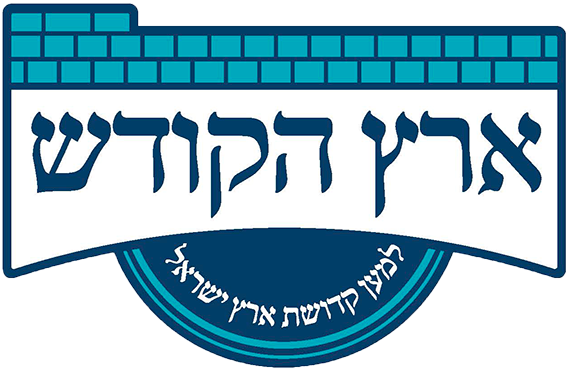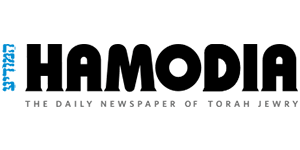The Eretz HaKodesh party of the World Zionist Organization was founded to fight for Torah values in the Holy Land, and that battle was on full display on Thursday in the plenary session of the World Zionist Congress. For the first time in history, the Reform and leftist movements who sought to pass resolutions against the values of Judaism, in the name of Diaspora Jewry, failed to do so. In a saga that lasted for many hours, the assembly adjourned without a vote taking place.
This was a significant blow to the leftist and liberal movements in the World Zionist Congress, with the Congress dispersing without their proposals being approved.
About 700 members of the World Zionist Congress had gathered in Yerushalayim, as the Congress convened for a festive event for the first time since the last such meeting, held in 2020, took place via Zoom due to the corona restrictions at that juncture. Now, delegates from all over the world traveled to attend the Congress in Yerushalayim Wednesday thru Friday, April 19-21.
Representatives of the religious and nationalistic factions of the Congress discovered in the weeks before the convention that there would be loose rules regarding submitting resolutions at the convention, leading to resolutions being proposed on controversial issues, including a resolution against the judicial reform promoted by the government, a resolution against changes in the Law of Return, and a resolution in recognition of Reform and Conservative conversions. Indeed, as would be seen, one resolution committee even refused to “encourage” aliyah. They also sought to pass a resolution that could curtail the influence of the Orthodox community going forward.
“We had a situation where the World Zionist Organization was voting even against positions of the Israeli government,” said Rabbi Pesach Lerner, chairman of Eretz HaKodesh.
After these intentions were revealed, representatives of the right-wing and religious factions, led by Rabbi Lerner, recruited and encouraged representatives of the right-wing factions to travel to Israel to fully participate in the sessions and votes. In fact, all of Eretz HaKodesh’s 25 delegates attended.
At the conclusion of the opening session late Wednesday afternoon, Rabbi Lerner announced Mincha. From all sides of the auditorium emerged Jews, some with yarmulkas already on their heads, some with yarmulkas coming out of their pockets, and some putting papers on their heads. An observer commented, “This is the biggest Mincha minyan – by far – that I have ever seen at the WZO Congress.”
It is also noteworthy that at the request and insistence of Eretz HaKodesh, meals under the kashrus supervision of the Badatz of the Eidah Hachareidus were offered to the delegates. In fact, the caterer ran out of food, never expecting so many non-Eretz HaKodesh delegates to take advantage of the Badatz-certified meals.
At the Congress, a strong bloc made up of Eretz HaKodesh, Mizrachi, Likud, and Shas put together enough signatures to force a vote on each resolution by name, meaning that each of the nearly 700 delegates would be called one by one for each of the 18 resolutions, a process that would have taken many hours.
As this type of name-by-name vote was previously unheard of, the presidium was called upon to debate the petition. Rabbi Lerner, representing Eretz HaKodesh, is on the presidium. They left the room amidst shouts of “Busha! Busha!” The representatives of the left took up the anthem of the protests of the left against the Israeli government, crying, “Shame! Shame!”
The presidium left to debate, and over an hour later all delegates who had been waiting in the main hall were told to break for dinner. It was about 45 minutes into the meeting that word emerged that some parties who had joined in that right-wing petition were beginning to fold. For Eretz HaKodesh, this was not an option. The issues being voted on were against Torah values, and nothing less than removing those anti-Torah resolutions was acceptable.
With the help of representatives from Shas and Likud, a new petition was drafted by Eretz HaKodesh. Within minutes, over 100 signatures had been compiled from across the spectrum. There were delegates from other factions that now joined. The Organization of Orthodox Synagogues Worldwide came out in force and joined Eretz HaKodesh.
With this petition ready to go, the presidium understood that Eretz HaKodesh and her new allies would not buckle, and that a by-name roll call vote would now be required. That would take multiple hours and could not be completed before the Congress adjourned Friday at noon.
Instead, an agreement was made. For the first time ever, there were no votes at the World Zionist Congress. Resolution discussion would take place on Friday and all voting may take place electronically at a later date.
Rabbi Lerner emerged from the presidium with the news. He told his new friends in the Likud, “Tonight, we showed everyone that the honor of G-d will never come second. We are here to stay, and we will defend Jewish tradition and the kedusha of the land always.”
A Likudnik responded, “Am Yisrael lo mefacheid. HaShem Elokeinu HaShem Echad” (The Jewish nation is not afraid. HaShem our G-d, HaShem is One).
Rabbi Lerner thanked the delegates who came from all over the world to stand up for Torah values and declared before the delegates from all factions at the Congress, “Who cares for Toras Yisroel? Who cares for Eretz Yisroel? Who cares about Hakadosh Boruch Hu? Today we see that we are strong and are the majority.”
The Congress had effectively come to an end.
Torah Judaism had emerged the victor.
“I’m proud that Eretz HaKodesh went in to defend the principles of Torah Judaism, of Israel, of family, and we didn’t buckle,” said Rabbi Lerner. “The left and the Reform [movement] realize that there is a formidable force challenging them.”
What will happen next?
It’s hard to know. There may be a vote electronically and online, but, in truth, at this point, that is secondary. What is important is that no resolutions against Torah values were passed at the World Zionist Congress.
“For the first time ever at the Congress,” remarked Rabbi Nechemya Malinowitz, “someone challenged the narrative about what the Jewish people want. The resolutions would have placed tremendous pressure on the government and would have likely directed millions of shekel through the WZO to further anti-Torah agendas.”
“This is what the gedolei Yisroel in Eretz Yisroel and America directed us to do – to get in and stop this,” added Rabbi Lerner. “Boruch HaShem, this is what we accomplished and this is what we will continue to do, with siyata diShmaya.”





